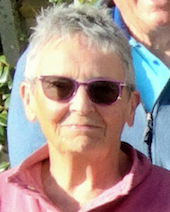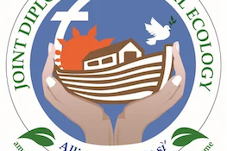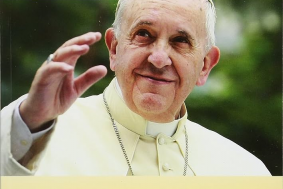Explaining Integral Ecology

Jane Lavery
When I first read the phrase 'Integral Ecology' in Pope Francis' encyclical Laudato Si' I thought I knew what it meant, but wasn't really sure. I certainly knew what each word meant - 'integral' is essential or fundamental to, and 'ecology' is the study of an environment and everything in it, but I really wasn't quite sure how the two fitted together, although they did appear to be as one.
The other phrase that Francis uses frequently in Laudato Si' is 'everything is connected'. And I came to realise that's what 'integral ecology' means - everything is connected.
For instance, did you know that some trees and fungi have a connection which benefits them both? The fungi attach themselves to the roots of the trees and gain access to the sugars that they themselves can't produce, while the trees benefit as the process extends the roots, allowing for greater absorption of nutrients for them. Because of the scale of the fungus' growth along its roots, these spread further and overlap with other trees, and as a result the trees can communicate with each other, particularly in times of distress. An amazing example of interconnectedness - integral ecology - everything working with everything else for the common good.
One of my favourite stories of interconnectedness is that of Yellowstone Park. Wolves had disappeared from the Park in the 1930s, and as a result their main prey, the elk, had flourished. This had proved detrimental to the vegetation the elks ate, which in turn affected the smaller mammals, birds and insects which had the same diet. In fact, the whole ecosystem was faltering, and the biodiversity of the Park was threatened. In the mid-nineties it was decided to re-introduce wolves, which by then had become a protected species. The results have been amazing, and far more beneficial to the Park's ecosystem than was envisaged. There are fewer elks, which allows more vegetation to be available to badgers, who have flourished and greatly improved the drainage of the area, allowing more species to thrive, and so the ecosystem is being restored. Everything is connected.
Humans are not always very good at seeing themselves as part of nature, often considering themselves superior to and in charge of the rest of the created world. But as Pope Francis says in his recently published apostolic exhortation Laudate Deum, 'Human beings must be recognised as part of nature' and continues that 'a healthy ecology is also the result of interaction between human beings and the environment'. He tells us that we should be able 'to recognise … that human life is incomprehensible and unsustainable without other creatures'.
This is the integral ecology that Pope Francis promulgates; an understanding that the wonderful world which God has created out of pure love is totally interconnected, and that everything, including humankind, is, according to Laudato Si', 'linked by unseen bonds and together form a kind of universal family, a sublime communion which fills us with a sacred, affectionate and humble respect'.
Jane Lavery is a volunteer with the Columban Justice, Peace and Ecology Team.


















